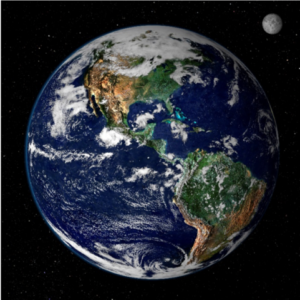Far far away, behind the word mountains, far from the countries Vokalia and Consonantia, there live the blind texts. Separated they live in Bookmarksgrove right at the coast.

In this second week of June, the Saint Anne Creation Care Committee continues to map out the Introduction to “Laudato Si’: On Care for Our Common Home” with the hope that parishioners will be inspired to read (or reread) Pope Francis’ groundbreaking Encyclical. Now a critical component of Catholic Social Teaching, this work is foundational to the Creation Care Committee. Over the summer, we will select key passages and summarize main points to help you grasp the overall development and identify the basic themes in the text. The numbers in parentheses indicate the paragraph numbers in the Encyclical.
From the beginning, Pope Francis recalls that “other Churches and Christian communities–and other religions as well–have also expressed deep concern and offered valuable reflections” on the theme of ecology (7). Indeed, such contributions expressly come in, starting with that of “the beloved Ecumenical Patriarch Bartholomew” (7), extensively cited in paragraphs 8 and 9. At several points, the Pope thanks the protagonists of this effort – individuals as well as associations and institutions. He acknowledges that “the reflections of numerous scientists, philosophers, theologians and civic groups, all […] have enriched the Church’s thinking on these questions” (7). He invites everyone to recognize “the rich contribution which the religions can make towards an integral ecology and the full development of humanity” (62).
The itinerary of the Encyclical is mapped out in paragraph 15 and is divided into six chapters. It starts by presenting the current situation based on the best scientific findings available today (Ch. 1), followed by a review of the Bible and Judeo-Christian tradition (Ch. 2). The root of the problems in technocracy and in an excessive self-centeredness of human being are analyzed (Ch. 3). The Encyclical then proposes (ch.4) an “integral ecology, which clearly respects its human and social dimensions” (137), inextricably linked to the environmental question. In this perspective, Pope Francis proposes (Ch. 5) to initiate an honest dialogue at every level of social, economic, and political life, that builds transparent decision-making processes. Recalling that no project can be effective if it is not animated by a formed and responsible conscience (Ch. 6), ideas are put forth to aid growth in this direction at the educational, spiritual, ecclesial, political, and theological levels. The text ends with two prayers; one offered for sharing with everyone who believes in “God who is the all- powerful Creator” (246), and the other to those who profess faith in Jesus Christ, punctuated by the refrain “Praise be to you!” which opens and closes the Encyclical.
Several main themes run through the text that are addressed from a variety of different perspectives, thus traversing and unifying the text:
- the intimate relationship between the poor and the fragility of the planet,
- the conviction that everything in the world is connected,
- the critique of new paradigms and forms of power derived from technology,
- the call to seek other ways of understanding the economy and progress,
- the value proper to each creature,
- the human meaning of ecology,
- the need for forthright and honest debate,
- the serious responsibility of international and local policy,
- the throwaway culture and the proposal of a new lifestyle (16).
